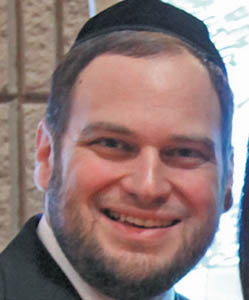
For those residing in the tenement apartments of New York City in the early 1900s, “waiting for the other shoe to drop” was a relatively common expression. The apartments were mostly identical and built on top of each other. The sound barrier was so light that residents would hear their neighbors above them taking off one shoe and would wait until they heard the second shoe drop. The expression became popular to describe an event that seemed to be inevitable. There are those of us who live our lives with this motto in mind although we may not like to admit it. When things are good, we wait for something bad to happen. In 2012, an article appearing in the Haaretz newspaper pointed to a research study by Haifa University that found that signs of trauma can be identified in third-generation grandchildren of Holocaust survivors. The researchers identified three patterns of distress that were passed down from survivors to the next few generations. The second-generation participants in the study recorded that their parents lived with a struggle of “threatening reality,” in which they were almost terrorized by unexpected events. Many survivors’ children said they were deprived of some of the most common expectations of childhood, such as playing with friends or going away on trips. Most notable was that survivor parents had a fear that their children would suffer harm or die suddenly. The study showed that as a result of this fear displayed by the parents, the children in turn feared that something bad would happen to the parents or that they would die prematurely. The study asserts that this fear seeped its way into the third generation as well.
The Torah records that Yaakov blessed Ephraim and Menashe “on that day.” Rav Moshe Lev MiSasov, zt”l, explains that within the bracha that Yaakov gave his grandsons was a deep message. He blessed them that they should be concerned only about the current day, and not to worry about the next day. How do we translate this lesson into our lives? On the one hand it is important and often essential to plan for the long term. Failure to plan is often irresponsible. At the same time we can become so overwhelmed with planning and concern about the future that we fail to experience the present. As is the case with most circumstances in life, we need to develop a proper balance of making the most of today without being concerned about tomorrow, while planning for tomorrow so that it is constructive as well. At the same time, it would benefit us to enjoy what we have today without fear of it being lost or harmed tomorrow. Only then will we be able to truly experience what life has to offer. Perhaps Yaakov’s insight was that the challenges of tomorrow will inevitably come, and be dealt with, while today will be lost forever. Let us try to make the most of every day with the proper balance and frame of mind concerning tomorrow.
By Rabbi Eliezer Zwickler
Rabbi Eliezer Zwickler is rabbi of Congregation AABJ&D in West Orange, New Jersey, and is a licensed clinical social worker in private practice. Rabbi Zwickler can be reached at [email protected].










